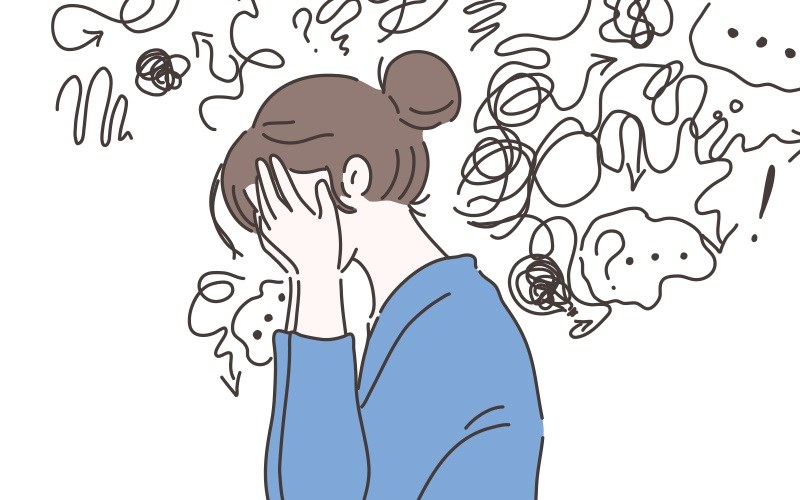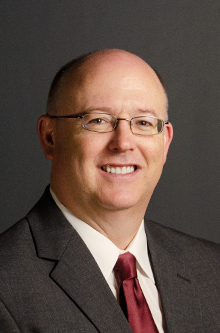

(Editor's Note: This article was first published in the May 2022 print edition of The Stand found online HERE.)
Don’t fret or worry. Instead of worrying, pray. Let petitions and praises shape your worries into prayers, letting God know your concerns. … It’s wonderful what happens when Christ displaces worry at the center of your life (Philippians 4:6-7, MSG).
Worry is a war on peace – especially if one is a Christian. In today’s fractious world, worry adds fuel and flames that invite anxiety and depression. World news coverage 24/7 spawns a cacophony of predictions of worst-case scenarios that threaten healthy living.
Then there is COVID. Few things have so shaken the world’s foundations – churches, economies, schools, governments, and personal interactions. Still, these factors alone may not cause anxiety or depression.
Dale A. Matthews, M.D., author of The Faith Factor: Proof of the Healing Power of Prayer, told The Stand, “I view medical treatment and spiritual treatment as two sides of the same coin.”
Former associate professor of medicine at Georgetown University School of Medicine, Matthews also participates in the Speaker’s Bureau for the Christian Medical and Dental Associations (CMDA).
Too often, it seems Christians presume that depression and anxiety are the result of spiritual or emotional issues. In reality, an examination is needed to discern if physical problems are also a factor.
A deacon who was experiencing extreme fatigue once told Matthews that he couldn’t be depressed – as if he were exempt because of his faith. The doctor simply asked the man, “Can you think of some great men in the Bible who were depressed?” How about David, Isaiah, Job, Elijah, and Jeremiah to name a few?
Matthews explained that if physical reasons for anxiety or depression are identified and treated, it becomes more effective to address mental and spiritual concerns.
Would the same community that creates a stigma for seeking medical help for depression discourage a diabetic from taking life-saving insulin? Or someone with thyroid problems for seeking treatment? Both diabetes and thyroid issues are proven sometimes to cause anxiety and depression. Knowing that, would others still automatically discount physical factors in the treatment process?
James 3:17 says, “But the wisdom from above is first pure, then peaceable, gentle, open to reason, full of mercy and good fruits, impartial and sincere.” Reason, mercy, and impartiality prompt a full investigation into the cause of any illness.
The physician is morally obligated to explore every possible path of wisdom in treating patients. “A good physician who is open to a spiritual approach should be able to determine whether or not your anxiety or your depression is related to a medical illness, emotional illness, or a spiritual issue,” Matthews said. “Medicine can help take away the pain of depression and anxiety enough so you can get into the spiritual and psychological work.”
The basic tests a physician might perform include blood work, a general physical exam, and possibly an interview or history if depression is suspect. The latter might include a Patient Health Questionnaire-2 (PHQ-2) to analyze the patient’s health over the past two weeks. (See section "More insights" below.)
Downed by depression
“The clinical definition for depression is two weeks where at least half of those days you’re feeling down or you’re not able to enjoy things that you usually enjoy,” Matthews said.
“The average, untreated depression [may last] a couple of years,” he added. “The worst statistic is about 10% of those with untreated depression kill themselves. But you don’t need to have suicidal thoughts to be depressed. Those thoughts are only one of nine criteria for depression, and you only need five of nine to make a diagnosis of depression.” The PHQ-9 addresses those criteria. (See "More information" below.)
Some people who are depressed cling to denial. For them, friends and family sometimes intervene to help them admit that they need help. Matthews said the intervening friends will likely say something like, “You are not the same person that you were last year. We love you and want to help you. And we’ve talked to Dr. Smith. He will see you tomorrow at 9:00. We want you to go, and we’ll drive you there.”
Attacked by anxiety
Matthews explained anxiety as having three distinct tracks – phobias, panic attacks, and generalized.
For example, agoraphobia seems to have increased because of COVID, he added. The word is derived from Greek agora meaning “marketplace,” “places of assembly,” or “open space.” Phobia sufferers avoid those places due to worry, fear, or anxiety, which often leads to self-isolation that may lead to depression.
“Panic disorders or attacks occur when people get episodic bouts of severe anxiety that might last 30 minutes to 2 hours at most,” Matthews said. “Then it goes away.”
Such attacks can frustrate patients who, after a panic attack, go to the ER, where a battery of tests shows no severe medical emergency. They may feel like they are about to die. But Matthews said this disorder is very treatable with medication and counseling.
“Generalized anxiety is where you feel jittery, irritable, anxious all the time – most of the time,” Matthews explained. He advises that if one feels this way for two weeks or more, then seek medical help.
As a Christian, Matthews depends on the power of prayer. He sometimes advises Christian patients – even as they take their medication – to “pray Colossians 3:17 where whatever we do in word or deed, to do it all in the name of the Lord Jesus – giving thanks to God the Father.”
Matthews recommends additional scriptural principles: 1) “The joy of the Lord is your strength” (Nehemiah 8:10) and “You have not because you ask not” (James 4:2).
Praying the prayers and practicing the principles of God’s Word may not always be easy, but they will always be the wise thing to do. As Dr. Matthews prescribes, combine prayer, appropriate counsel, and medical treatment – and better health is attainable.
More insights
Doctors often initially review the patient’s last two weeks for signs of depression.
“Some data,” Dr. Dale A. Matthews said, “shows people are actually more honest on written or computer surveys.” Physicians often employ screening tools such as a Patient Health Questionnaire (PHQ). But the questions are non-threatening and don’t require a narrative response. For example, a PHQ-2 asks two simple questions:
- Over the last two weeks, how often have you been bothered by little interest or pleasure in doing things?
- Over the last two weeks, how often have you been bothered by feeling down, depressed, or hopeless?
For each question, a patient chooses one response from these four: “Not at all,” “Several days,” “More than half the days,” or “Nearly every day.” The two responses guide the doctor in determining if the patient merits a PHQ-9 with nine questions. Matthews revealed that clinical depression may be diagnosed based on the analysis of the patient’s nine responses.
More information
▶ At press time, this link would take the reader to the questions on a PHQ-9: mdcalc.com/phq-9-patient-health-questionnaire-9.
▶ Dr. Dale A. Matthews’ book The Faith Factor is available (on Kindle only) at christianbook.com. If ordering, be alert for similar or identical titles.
▶ Contact American Association of Christian Counselors at aacc.net or 800.526.8673.
▶ Contact the Christian Medical and Dental Associations at cmda.org or 888.230.2637. CMDA does not provide healthcare services.
▶ Contact the Suicide Prevention Hotline at suicidepreventionlifeline.org or 800.273.8255.

